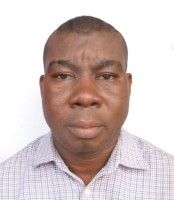
Daniel Ikenna Molobe is a social development consultant with functional expertise that spanned over a decade in programs and research. He has spent a major part of his career in social interventions and public health activities having worked with both local and international organizations. He holds M.Sc in Public Health from University of Lagos; B.Sc in Applied Microbiology from Nnamdi Azikiwe University, Awka; and a National Diploma in Science Laboratory Technology from Institute of Management and Technology (IMT) Enugu. He received advanced training certificate in Addiction Research & Pregnancy at Morehouse School of Medicine in Atlanta, Georgia, and completed an Executive Course in Human Rights and Drug Policy at University of Ghana School of Law. He has also received the UNODC DPTC training and UNODC Policy Maker training on The Nature, Prevention, and Treatment of Drug use Disorder. He has presented papers at international conferences, and has published in peer reviewed journals. He was a Lead Guest Editor of Special Issue on Addiction and Substance Abuse of Science Journal of Public Health (SJPH) USA, and also a recipient of the 2018 UNODC Academic Research Grant. He co-founded the Unified Initiative for a Drug Free Nigeria where he currently serves as Director. He also serves on the board of the ISSUP Nigeria as treasurer and Africa Regional Lead for International Substance Abuse and Addiction Coalition (ISAAC). He is currently an International Research Fellow at the Global Center for Applied Health Research (GCAHR) of Arizona State University, USA.
Abstract body
Background: The objective of this study is to assess for prevalence of drug trafficking among female Nigerian returned migrants from Libyan detention centers in the transit or destination along the Mediterranean irregular migratory route.
Method: Population of study comprised a total sample size of 382 (144 females and 238 males) migrant returnees. Respondents’ recruitment employed the use of snowballing technique. Data was collected with interviewer administered questionnaire, and supplemented through in-depth interviews, focus group discussions and case study.
Result: This result was interested in the female respondents among the population of study. 58.6% in the female population were trafficked for prostitution. Among female respondents, 4% were engaged in drug trafficking. 1% of total married female returnees engaged in drug trafficking, and not less than 4% of the total female returnees that engaged in drug trafficking are separated with their spouses. 12% of the females from the total respondents that trafficked drugs had previous experience. Pregnant women were also used for trafficking of drugs along the irregular migratory route.
Conclusion: The study discovered that irregular migrants get into drug business majorly to raise money for survival while some were forced in to the business, and women remain vulnerable.
Learning objectives
1 To understand the prevalence of drug trafficking among female migrants
2.To investigate the nature of illicit trafficking among the female irregular migrants.